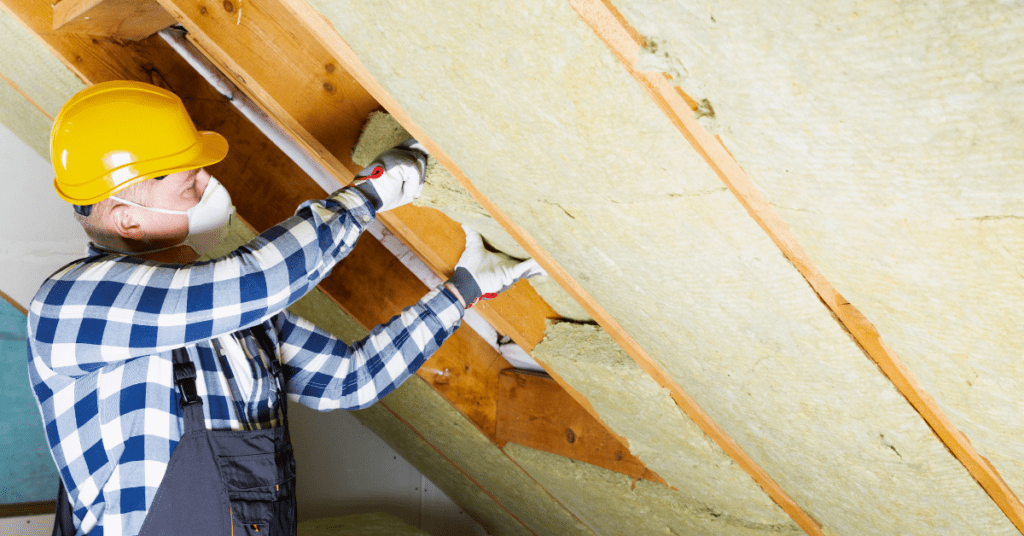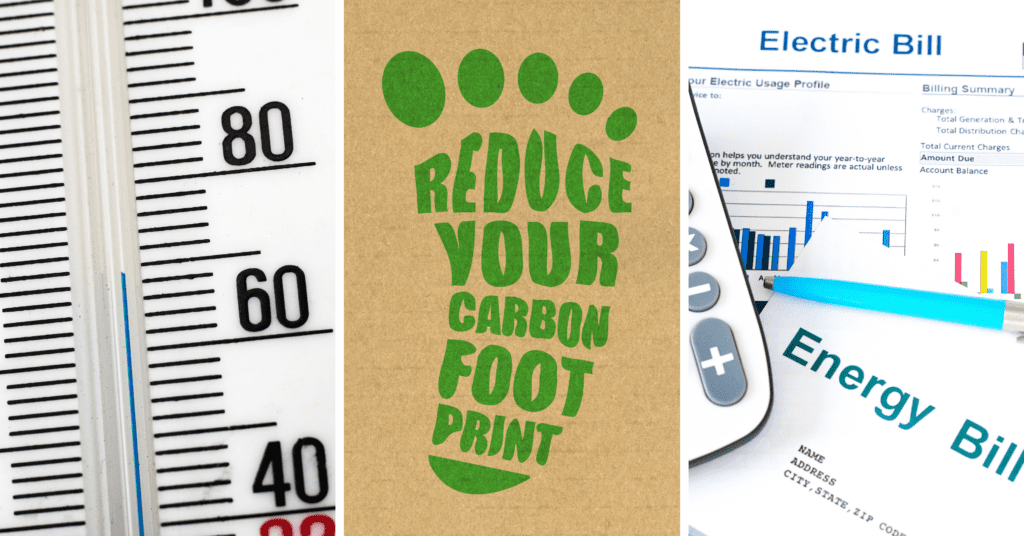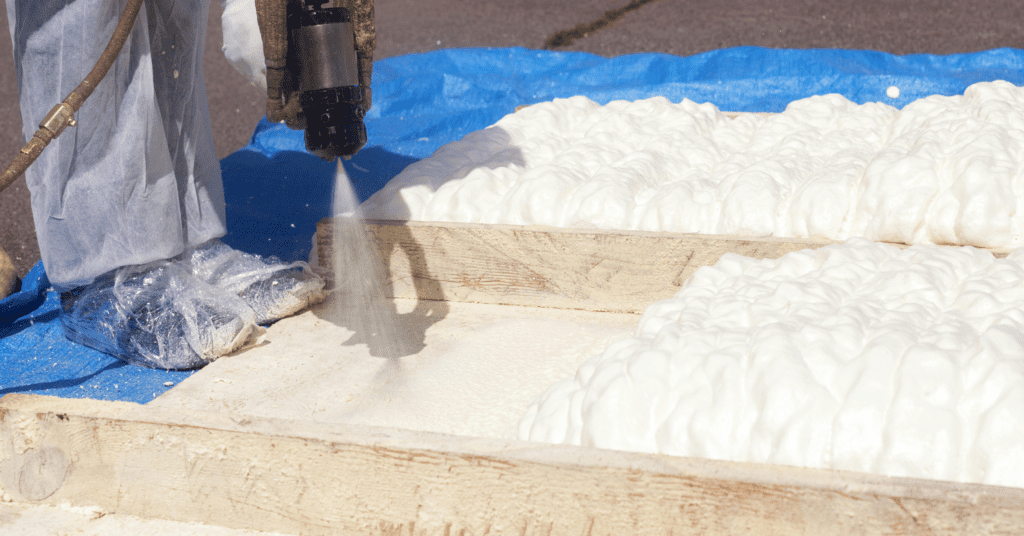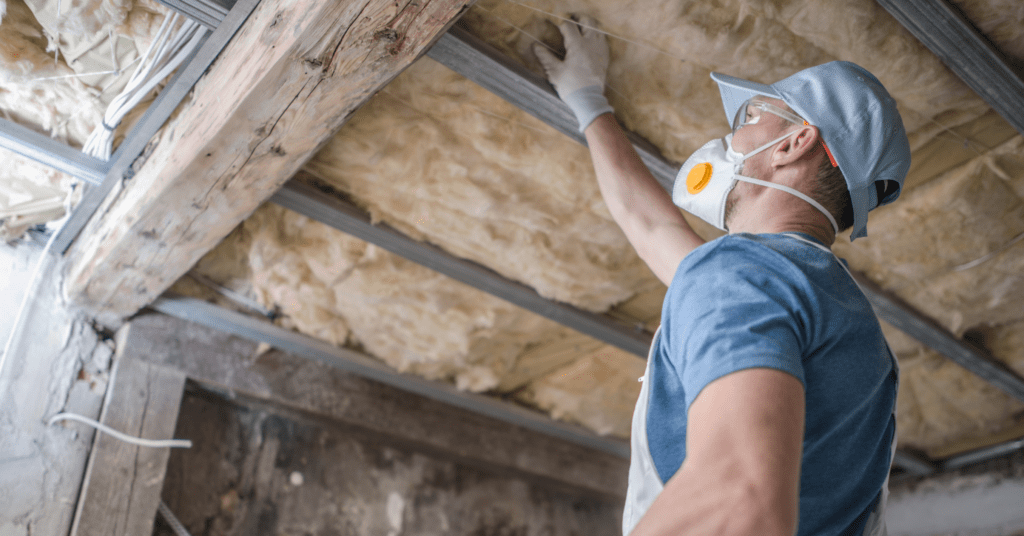What Can a Roofer Do to Improve the Insulation of Your Roof?


Is your home too hot in the summer or too cold in the winter? Your roof insulation could be the culprit. Having a well-insulated roof is critical to maintaining a comfortable living environment and reducing energy costs. But how can a roofer improve your roof’s insulation? That’s what we’ll explore in this article.
Before we delve into the actions a roofer can take, it’s essential to understand what roof insulation is and why it’s so important.
The Concept of Roof Insulation
Roof insulation, in simple terms, is a barrier of material within your roof structure that reduces heat transfer. It’s like a thermal blanket for your house, keeping it warm in the winter and cool in the summer. Sounds pretty essential, right?
Understanding roof insulation is pivotal, especially when considering the energy loss implications. Familiarize yourself with the top signs your roof may be causing energy loss to keep a check on your insulation’s performance.
Benefits of Effective Roof Insulation


Effective roof insulation provides numerous benefits. It regulates the temperature inside your home, reduces energy consumption, and thus lowers your utility bills. Not to mention, it also helps in reducing the carbon footprint.
Steps a Roofer Can Take to Improve Roof Insulation
A roofer can play a significant role in enhancing your roof’s insulation. Here are the steps they can take:
1. Thorough Inspection
The first step a roofer can take is to thoroughly inspect the roof and attic space to identify any existing insulation and evaluate its effectiveness. Before making any insulation improvements, a roofer begins with a thorough inspection. It’s advisable to understand how often you should have your roof inspected to stay ahead of potential issues.
2. Choosing the Right Insulation Material
The choice of insulation material is pivotal in determining the effectiveness of roof insulation. Different materials provide varying degrees of thermal resistance, also known as R-value, which ultimately affects the insulation performance. Your roofer can guide you in selecting the best material considering factors like your local climate, the type of your roof, and your budget.
- Fiberglass: It typically has an R-value ranging from 2.9 to 3.8 per inch of thickness. It’s a popular choice due to its affordability and effectiveness, especially for areas with standard joist spacing.
- Mineral Wool: It has an R-value that ranges from 3.0 to 3.3 per inch. Its fire-resistant and soundproofing properties make it a unique option, providing benefits beyond thermal insulation.
- Cellulose: It has a slightly higher R-value, ranging from 3.2 to 3.8 per inch. Being an eco-friendly option made from recycled paper, it’s often preferred for its environmental benefits and its ability to fill small spaces effectively when blown in.
- Spray Foam: It is highly effective with a high R-value. Open-cell spray foam has an R-value of about 3.5 per inch, while closed-cell spray foam has a much higher R-value of about 6.0 to 7.0 per inch. This makes it an excellent option for achieving high thermal resistance, although it is more expensive than the other options.
While a higher R-value is generally better, the optimal R-value for your home depends on your local climate, the area of the house you’re insulating, and the type of heating and cooling system you have. A professional roofer can provide guidance based on these factors to help you choose the most suitable insulation material.
3. Proper Installation of Insulation
Once the right insulation material is chosen, the roofer must ensure its proper installation. The insulation should fill all the gaps without any overlaps or compressions.
4. Ventilation Considerations
Ventilation is crucial in preventing moisture buildup, which can degrade insulation. The roofer should ensure proper ventilation in the roof structure.
5. Sealing and Weatherstripping
Sealing and weatherstripping around openings can prevent air leaks, enhancing the effectiveness of insulation. This is another step a roofer can take.
Advanced Techniques for Roof Insulation


A roofer can also employ advanced techniques to further improve your roof’s insulation:
1. Spray Foam Insulation
Spray foam is a type of insulation that expands after application, filling nooks and crannies to form a tight seal. A roofer can apply it to enhance the roof’s insulation.
2. Radiant Barrier Sheathing
This is a type of roof sheathing that reflects radiant heat, helping to keep your home cooler in hot climates. Your roofer can install it as part of a roof renovation.
3. Insulated Roof Panels
Insulated roof panels are prefabricated, highly insulating panels that can be installed by your roofer. They provide excellent thermal performance and are quick to install. For those considering a broader renovation, insulated roof panels and installing metal roofing can provide enhanced insulation and durability.
Role of Maintenance in Roof Insulation


Maintaining the insulation in your roof is just as important as installing it. When communicating with a roofer about insulation maintenance, it’s beneficial to be familiar with common terminology. Check out the 16 roofing terms you need to know to ensure you’re on the same page. Here’s how a roofer can help:
1. Regular Insulation Checks
A roofer can perform regular checks to ensure your insulation is still effective. They can look for signs of damage, moisture, and pests, all of which can degrade insulation.
2. Repair and Replacement
If the insulation is damaged or degraded, your roofer can repair or replace it to ensure its effectiveness.
3. Professional Maintenance Services
Some roofing companies offer maintenance services, which can include routine checks and repair of insulation. This can be a convenient way to ensure your insulation is always at its best.
Conclusion
In conclusion, a roofer plays a crucial role in improving your roof’s insulation. From the initial inspection to the selection of materials, proper installation, and maintenance, a roofer’s expertise can significantly impact the comfort of your home and the size of your energy bills. Don’t underestimate the importance of a well-insulated roof! When looking for a roofer to improve your roof’s insulation, ensure you are well-informed and prepared. Here are 4 questions to ask a roofer before you sign a contract.
Seeking Expert Roofing Services Near You? Don’t compromise on the insulation and overall well-being of your roof.
- Burnaby roofers and roofing contractors
- Coquitlam roofers and roofing contractors
- Delta roofers and roofing contractors
- Ladner roofers and roofing contractors
- Langley roofers and roofing contractors
- Maple Ridge roofers and roofing contractors
- New Westminster roofers and roofing contractors
- North Vancouver roofers and roofing contractors
- Pitt Meadows roofers and roofing contractors
- Port Coquitlam roofers and roofing contractors
- Port Moody roofers and roofing contractors
- Richmond roofers and roofing contractors
- Surrey roofers and roofing contractors
- West Vancouver roofers and roofing contractors
- White Rock roofers and roofing contractors
- Vancouver roofers and roofing contractors
Our expert roofers are committed to ensuring optimal insulation for homes across the region. Contact us today for a thorough roof inspection and unparalleled service!
